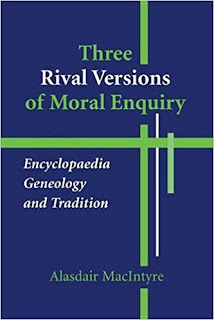 |
| Above: My father told constant stories about life |
First, because my home was filled with music, song and my father's personal anecdotes of life in Scotland. My father's stories often focused on family hardship, and later in Australia, the struggles of an immigrant family and a lifetime of battles as a trade union leader against the power of big business. Both my parents were also musicians and entertainers, and my mother and sister were both gifted singers. Music, in a sense, was another form of storytelling that also filled our home. Second, my grandfather, with whom I spent all my school holidays, loved literature, particularly poetry, and was constantly quoting and reciting it. He would also constantly quote the Bible as part of daily life.
 |
| Above: A brother is introducing his sister to the power of story |
In my book 'Pedagogy and Education for Life', I devote a chapter to storytelling and in it write:
The significance of story for teaching should be obvious. It operates at multiple levels in the life of the school. At one level, students learn about the world through story. But at a deeper level they begin to imagine their own futures, their deepest desires, and the good life which they seek. As well, story is experienced in many forms: written, spoken, sung, viewed, heard, and experienced. In our world, we can be confronted and moved by books, advertising, movies, and music. This of course occurs in the 'everydayness' of life, whether at school, work, home, or in the world at large.
James K. A. Smith in his book 'Desiring the Kingdom: Worship, Worldview, and Cultural Formation', argues that we are embodied creatures who absorb the stories of life, and engage in rituals and cultural practices that shape our desires and our vision of the good life. The stories that are part of our experience shape our vision of the good life, give focus to our desires, and direction to our lives.
But we don't just enjoy and absorb stories, we create them and share them as a central part of life. As Alasdair MacIntyre, suggests in his book 'After Virtue' we are storytelling creatures:
“Man [sic] is in his actions and practices, as well as in his fictions, essentially a story-telling animal.”
Humans frequently think in narrative, pass on personal histories, envision the future and speak of the present often through story. But there's more! Our stories have a relationship to the stories of other people, and also the central salvation narrative of the Bible. MacIntyre suggests in 'Three Rival Versions of Moral Enquiry' that 'The story of oneself is embedded in the history of the world, an overall narrative within which all other narratives find their place'. J.R. Tolkien suggested something similar when he challenged C.S. Lewis to consider the Christian faith.
It has become obvious to me over time, that my personal life story has a relationship to all other stories that I have experienced in life. This too is the experience of our children. Teachers need to understand this, for it has significant consequences for the view of the world they are forming each day, and even more important than this, their view of their potential future. For much of the life of school, teachers have little connection to the stories that are shaping the lives of our young people. One of the great challenges that we face is how to address this disconnection between adults and the private narrative worlds of our students.
Being participants in the storied lives that our children live each day, is a major challenge for parents and teachers. In 'Pedagogy and Education for Life' I argue that we need to strive to help our children connect their lives to the Bible's central narrative. That is:
In the beginning, God created . . . and it was good. But sin entered the world, man rebelled against Him, and so God placed a curse upon his creation that one day would end in judgment. But God always had a plan to respond to such rebellion, a plan of redemption motivated by love, an amazing gift and act of grace: sending his own Son to die, and then three days later to be raised from the dead to defeat sin and death, and one day to return to judge the living and the dead. This is how the Bible outlines God's plan to provide a way for his creation to be restored to a rightful relationship with him.
Stories can be used by God as part of his general revelation and common grace to us, both to enrich our imagined and hoped-for view of the good life, and in the process draw attention to aspects of the human condition.
 |
Finally, stories can bring into focus truth, beauty, and goodness, as well as human virtues that reflect the grace and providence of God. Teachers need to constantly ask themselves, how do I share and position classroom life in such a way, that ultimately, the stories that our students hear, share and are influenced by, have a connection to the central narrative of the Gospel of Christ?
NEXT Post - Worldview, Virtues and Values

No comments:
Post a Comment